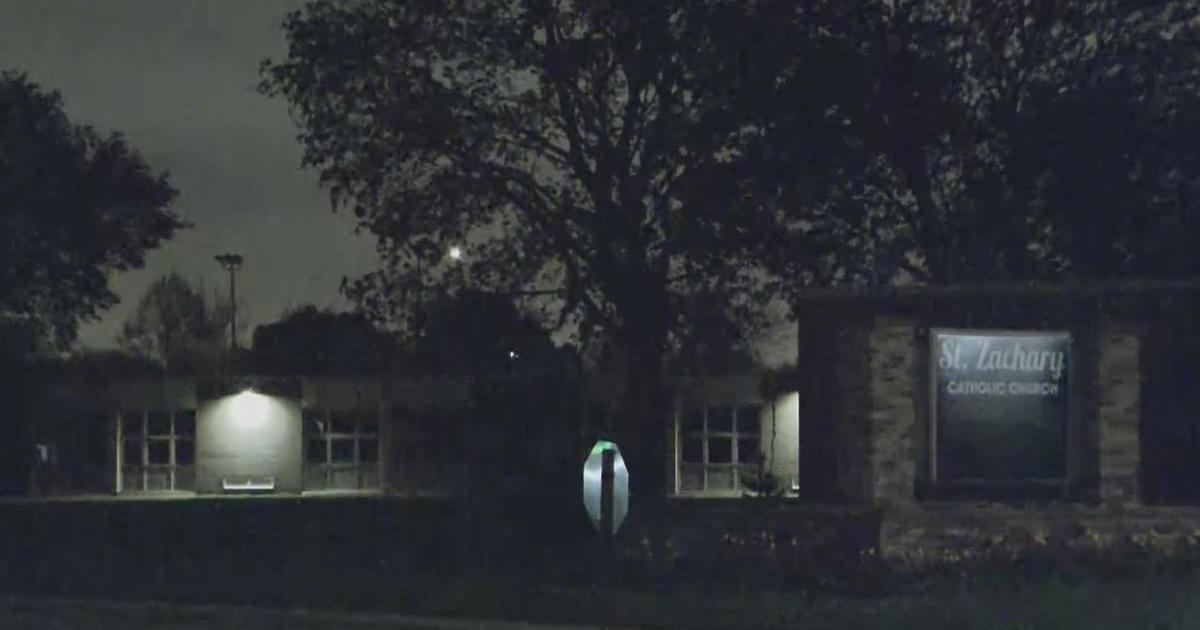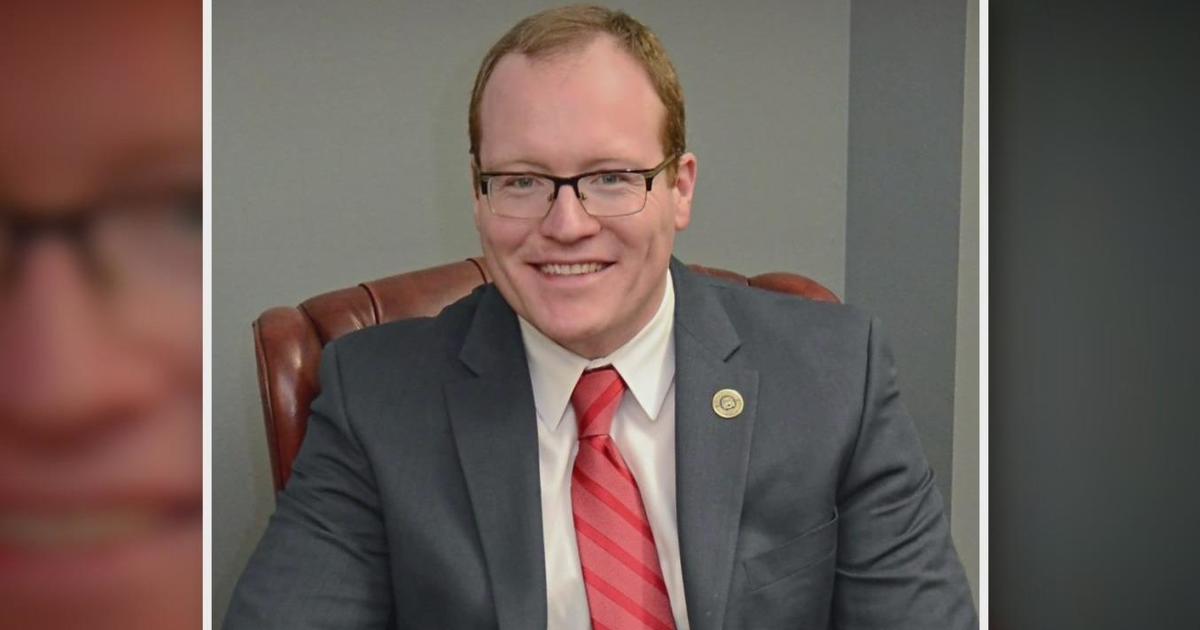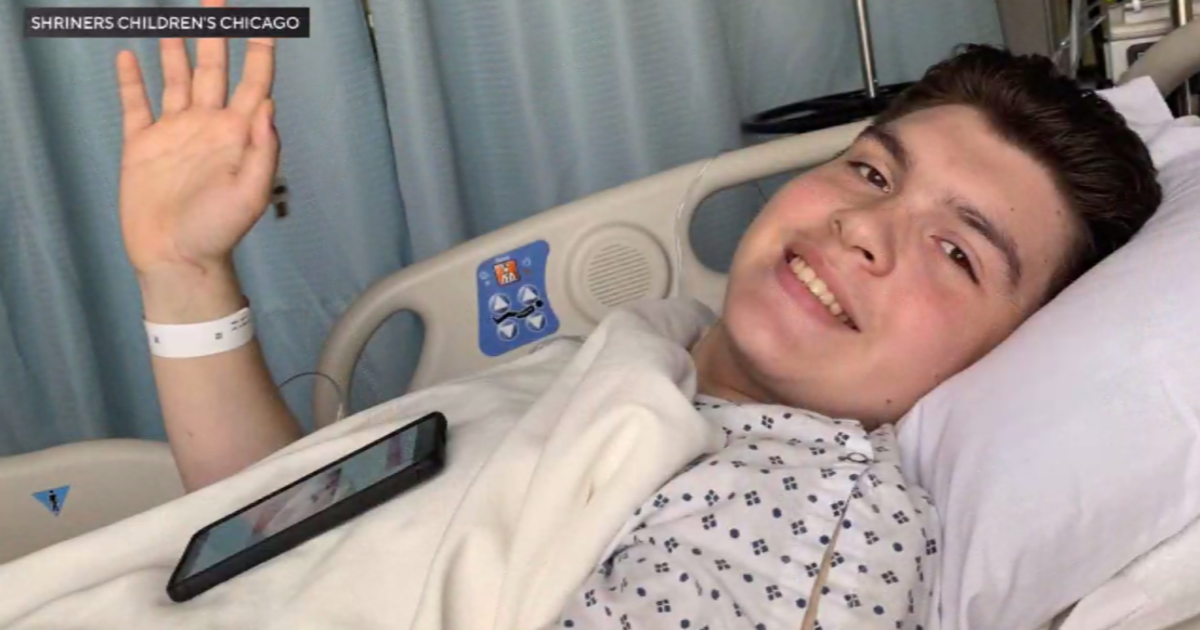As Measles Resurges, More Illinoisans Are Claiming Religious Objections To Vaccines
By Christopher Hacker
CHICAGO (CBS) -- Every fall, Megan Redshaw performs an unusual back to school ritual for her family. She fills out special paperwork, sits through doctors' visits and listens during informational sessions for each of her four school-aged children, all so they can attend school without their required vaccinations.
Redshaw is one thousands of parents across Illinois claiming religious objections to vaccines. From Chicago to Peoria to downstate Quincy where she lives, there are now nearly 20,000 children whose parents say their faith prohibits them from vaccinating their children — almost two times the number that sought religious exemptions a decade ago.
That's despite a 2015 law designed in part to tamp down on non-medical exemptions. Signed by then-Governor Bruce Rauner, it added the requirement that families seeking religious exemptions fill out a form explaining their objections to vaccines. That form must also be signed by a doctor, stating he or she told them the risks of not immunizing their children.
That hasn't stopped thousands of Illinoisans from refusing to vaccinate their children on religious grounds.
Religious exemptions now account for nearly half of all unvaccinated children in Illinois. That means for every child with a legitimate medical reason not to be vaccinated, there are more than six children with religious exemptions.
Why Children Remain Unvaccinated
The portion of unvaccinated Illinois students with religious exemptions has steadily risen in recent years, now making up almost half of unprotected children statewide.
Source: IDPH Immunization School Survey Results data
NOTE: There are four vaccination exemptions in Illinois: medical, religious, exemptions for homeless students and exemptions for students vaccinated on a delayed schedule approved by a physician. Unvaccinated students without one of those exemptions can still attend school, and are considered "non-compliant."
Students are required to get the measles vaccine — along with those for nine other preventable conditions — to attend school in Illinois. That ensures enough kids are immunized to prevent an outbreak. For highly contagious measles, experts say at least 95% of children at a school should be protected.
That is far from the case at hundreds of Illinois schools.
During the 2018-2019 school year, there were 514 schools where less than 95% of students were protected against measles, according to data published annually by the Illinois State Board of Education. Less than 10% of schools had 100% coverage.
The rise in religious exemptions comes as the worst measles outbreak in years spreads through communities throughout the U.S. There have been more than 1,000 documented cases of the deadly disease, which was declared eliminated in 2000, so far this year. And in Illinois, where experts have said the next measles outbreak could be brewing, there have already been nine cases in 2019.
That means students at schools without enough vaccination coverage could be at risk, according to Dr. Elizabeth Swider, a pediatrician at North Shore University Health System.
Just a block from Swider's office in downtown Evanston, the private Montessori school Beacon Academy had only 89% of its almost 200 students protected against measles last year. Five of those unvaccinated students claimed religious exemptions; the rest were non-compliant.
But Beacon Academy pales in comparison to schools in the Chicago area with some of the lowest vaccination rates.
South of Dr. Swider's office, in Chicago's Hermosa neighborhood, just 59% of students at Jehovah Lutheran School are vaccinated. A mile south of that, just 64% of students at Maternity BVM School are protected.
And on the city's South Side, in the South Shore neighborhood, Muhammad University has the worst vaccination rate in the state, with only 10% of students vaccinated.
"I worry about one single case, potentially, in that particular school of measles," Swider said. "Measles, for example, is a very contagious condition and so it really doesn't take much to spread it."
A Statewide Problem
There are more than 500 schools in Illinois, with a total of nearly 140,000 students, where less than 95% of students were vaccinated last year
Source: ISBE data
A measles infection can take as long as two weeks to start showing symptoms, according to the Centers for Disease Control and Prevention. It starts with a cough, sometimes watery eyes and a runny nose. A high fever usually follows, then a telltale rash.
In the days before and after the rash presents, measles is able to spread quickly through the air; it's one of the most contagious infectious diseases known, experts say.
Effective vaccination requirements have reduced the number of measles cases in the U.S., and there hasn't been a death because of measles since 2015. The illness can have serious complications, however, especially for young children and people with compromised immune systems.
More serious effects can include pneumonia and brain swelling and can be fatal.
How Bad are the Worst Schools?
Of the 514 schools without enough students vaccinated, most are close to the necessary 95%. Others are far worse.
Source: ISBE Data
The reduction in measles cases means Swider, like most doctors in the U.S., has never treated a patient with measles, but she's concerned about the resistance to vaccines she and her colleagues see.
"[There's] a bit of frustration in how difficult it is to have these conversations — we encounter them commonly," Swider said. "We're armed to give the information and we're ready, but it does take a lot of time. And so as we're having these discussions, we're noticing that it's difficult."
Redshaw remains unconvinced.
A self-described wellness blogger who says she has "extensively studied" vaccines, the mother of six said she believes the injections are unsafe, ineffective and contain toxic chemicals — claims debunked by myriad scientific studies, according to the CDC.
These kinds of fears explain a large part of the rise in measles cases, according to Dr. Aasim Padela, who directs the University of Chicago's Program on Medicine and Religion. He says people often struggle to tell real science from dubious online sources, leading them to doubt established research.
"From the perspective as a clinician, it's very dangerous when you're acting on myths," Padela said.
But Redshaw also believes some vaccines contain tissue from aborted fetuses, which would conflict with her religious opposition to abortion. In January, she wrote a blog post detailing how she got her own children's religious exemptions — and how other parents can do the same.
In the post, she describes arguing for a religious exemption like walking a tightrope; parents must carefully craft their responses to avoid being denied.
For parents like Redshaw, religious beliefs and skepticism of science are often deeply intertwined. Religious people tend to be more skeptical of a range of scientific issues, especially vaccines, according to a recent survey of global opinions on science.
Because parents with religious objections to vaccines often also fear they could be harmful, they should stay focused on their legal right to have an exemption, rather than any concerns about vaccines' safety, Redshaw said.
"Don't get into this study or that study or the philosophical reasons why they're not vaccinating," Redshaw said. "Keep it centered and focus on the religious exemption and their right under the law to have that exemption."
Objections like Redshaw's — those based on genuinely-held beliefs — can come from a range of religious traditions. For some Jews, as well as Muslims like Padela, there's the fact that some vaccines contain porcine gelatin, a material derived from pork skin; for Christians, there's the belief that they contain material from aborted fetuses. While in reality vaccines themselves don't contain fetal material, several vaccines were originally created using cells from two fetuses aborted in the 1960s.
Whatever the reason for foregoing vaccines, Padela said, the end result is the same: people are unprotected, putting others at risk.
"If there's a harm to be had, we can't bear that burden for your belief system," Padela said.
The only solution, according to Padela, is for doctors on the front lines like Swider to communicate with patients who are hesitant to vaccines.
"We need to bridge build with that community, understand what those reasons are that they believe they cannot vaccinate, and figure out if there are ways to work around that," Padela said.
That's easier said than done, however, according to Swider.
Parents with philosophical concerns — concerns about vaccines' safety and effectiveness — are easier to reason with, she said. She understands the science and has read some of the studies, and having a doctor explain that in person can help change those parents' minds.
"The risks of the disease are real. That is going on right now, and the risks of the vaccine are mostly theoretical and mostly disproven," Swider said she tells those parents, adding that parents are often receptive to her input.
For parents with religious concerns, Swider said, it's a different story.
Swider's office doesn't accept unvaccinated children to protect the rest of their patients, but before turning someone away, Swider said they try to have a conversation with them.
"Those discussions are more difficult," Swider said. "Most major religions actually have put out statements in support of vaccines where they may have concerns about whether fetal cells were used in the development of vaccines or things of this nature. These are old things dating back decades and the religions have mostly come around to state this is not something that should cause parents hesitancy."
But if those parents are still hesitant even after a conversation with their doctor, Swider said her office may have to turn them away to protect their other patients.
As the number of measles cases in the U.S. grows, some communities are wrestling with whether to do away with religious exemptions altogether. In Illinois, unvaccinated children aren't allowed to attend school as a precaution if there's an outbreak nearby. But other states, such as New York, have eliminated non-medical exemptions altogether.
Padela, however, urges caution.
People with legitimate religious objections to vaccines shouldn't be forced to receive medical treatment that goes against their faith, he argues. Instead, the medical community should work to educate people and ensure there are religiously acceptable alternatives where possible.
"The state can always overrule that when public health crisis of significant magnitude," Padela said. "When Typhoid Mary was around, we were taking people's liberties away; it's the same sort of idea. But that' should not be the first policy action or the first legal action — that we take liberties away. We should be a society that's free."



